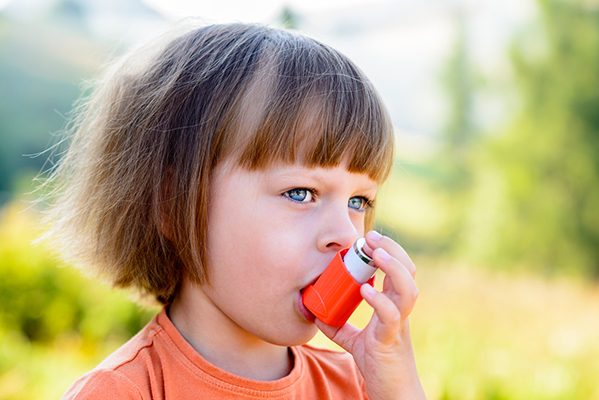More research links traffic pollution to an increased risk of asthma in children

Image: bubutu/Istock.com via AFP Relaxnews
New United States research has found yet more evidence to suggest that there is a strong link between traffic pollution and asthma in young children.
Led by scientists at Beth Israel Deaconess Medical Center (BIDMC) and the Harvard T.H. Chan School of Public Health, the study analyzed data from 1,522 children to assess the effect of long-term exposure to air pollution on asthma.
The children’s mothers were already enrolled in a long-term study called Project Viva, which gave the researchers access to comprehensive medical, socio-economic and demographic information, including their residential address history.
The team also used mapping technologies to measure the distance between each child’s home address and the nearest major roadway, and calculated the children’s daily exposure to fine particulate matter.
Also known as PM 2.5, fine particulate matter are tiny particles suspended in the air measuring 2.5 micrometers or smaller. When inhaled, these small particles, which come from fuel combustion, including traffic and power plants, deposit in the lungs.
In addition, the team also looked at the children’s daily exposure to soot, a component of fine PM also known as black carbon, which originates from incompletely burned fossil fuels which from car engines (especially diesel) and power plants.
The results showed that living close to a major road was linked to childhood asthma in all ages examined in the study, with the team finding that children living less than 100 meters from a major road were nearly three times more likely to experience asthma symptoms or use asthma medications daily by ages seven to 10, compared with those who lived more than 400 meters away.
In addition, the team also found that lifetime exposure to black carbon and fine PM were also linked to the asthma in early childhood (ages three to five years).
“Younger children spend a larger proportion of their time at home than school-aged children, and their airways are smaller and may be more likely to wheeze in response to pollution,” commented corresponding author Mary B. Rice. “This may explain why pollution exposure was most consistently linked to asthma in young children.”
However the team were surprised to find that in mid-childhood (ages seven to 10 years), these pollutants were associated with asthma only among girls, with Rice adding that, “Future work will need to investigate whether girls are more susceptible to pollution than boys.”
A French study published just last month also found that long-term exposure to outdoor air pollution can increase the risk of asthma symptoms in adults, while previous research has also found that children exposed to coarse particulate matter, which is larger than fine particulate matter, are more likely to develop asthma and need hospital care than children who are unexposed.
The results can be found published online in the Journal of Allergy and Clinical Immunology. JB
RELATED STORIES:
Could low levels of iron and vitamin B12 contribute to bad behavior in young boys?